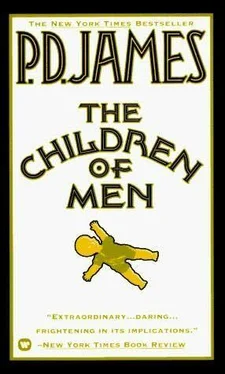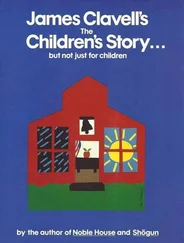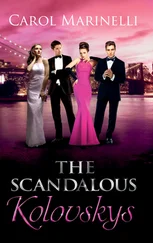“Oh, they seem to need them. Anyway, the only women you can approach like that want cash payment in advance. We can strike lucky in Poole with one film and a couple of hours’ drinking.”
“I don’t think I’ll come.”
“You’re probably right. I usually feel next morning that it hasn’t been worth the trouble.”
It was typical of him to make it sound as if my reluctance was not, as he must have known, a mixture of embarrassment, fear of failure and shame. I could hardly blame Xan for the fact that I lost my virginity in conditions of acute discomfort in a Poole car park with a redhead who made it plain, both during my fumbling preliminaries and afterwards, that she had known better ways of spending a Saturday evening. And I can hardly claim that the experience adversely affected my sex life. After all, if our sex life were determined by our first youthful experiments, most of the world would be doomed to celibacy. In no area of human experience are human beings more convinced that something better can be had if only they persevere.
Apart from the cook, I can remember few of the servants. There was a gardener, Hobhouse, with a pathological dislike of roses, particularly when planted with other flowers. They get in everywhere, he would grumble, as if the climbers and standard bushes which he resentfully and skilfully pruned had somehow mysteriously seeded themselves. And there was Scovell, with his pretty, pert face, whose precise function I never understood: chauffeur, gardener’s boy, handyman? Xan either ignored him or was calculatingly offensive. I had never known him to be rude to any other servant and would have asked him why if I hadn’t sensed, alert as always to every nuance of emotion in my cousin, that the question would be unwise.
I didn’t resent it that Xan was our grandparents’ favourite. The preference seemed to me perfectly natural. I can remember one snatch of conversation overheard at the one Christmas when, disastrously, we were all together at Woolcombe.
“I sometimes wonder if Theo won’t go further than Xan in the end.”
“Oh no. Theo is a good-looking, intelligent boy, but Xan is brilliant.”
Xan and I colluded in that judgement. When I got my Oxford entrance they were gratified but surprised. When Xan was accepted at Balliol they took it as his due. When I got my First they said I was lucky. When Xan achieved no more than an upper second they complained, but indulgently, that he hadn’t bothered to work.
He didn’t make demands, never treated me like a poor cousin, annually provided me with food, drink and a free holiday in return for companionship or subservience. If I wanted to be alone, I could be, without complaint or comment. Usually this was in the library, a room which delighted me with its shelves filled with leather-bound books, its pilasters and carved capitals, the great stone fireplace with its carved coat of arms, the marble busts in their niches, the huge map table where I could spread my books and holiday tasks, the deep leather armchairs, the view from the tall windows across the lawn down to the river and the bridge. It was here, browsing in the county histories, that I discovered that a skirmish had been fought on that bridge in the Civil War when five young Cavaliers had held the bridge against the Roundheads until all of them had fallen. Even their names were set out, a roll-call of romantic courage: Ormerod, Freemantle, Cole, Bydder, Fairfax. I went to Xan in great excitement and dragged him into the library.
“Look, the actual date of the fight is next Wednesday, August 16. We ought to celebrate.”
“How? Throw flowers in the water?”
But he was not being either dismissive or contemptuous and he was only slightly amused at my enthusiasm.
“Why not drink to them anyway? Make a ceremony of it.”
We did both. We went to the bridge at sunset with a bottle of his father’s claret, the two pistols, my arms filled with flowers from the walled garden. We drank the bottle between us; then Xan balanced on the parapet, firing both pistols into the air as I shouted out the names. It is one of the moments from my boyhood which have remained with me, an evening of pure joy, unshadowed, untainted by guilt or satiety or regret, immortalized for me in that image of Xan balanced against the sunset, of his flaming hair, of the pale petals of roses floating downstream under the bridge until they were lost to sight.
I can remember my first holiday at Woolcombe. I followed Xan up a second flight of stairs at the end of the corridor to a room at the top of the house looking out over the terrace and the lawn towards the river and the bridge. At first, sensitive and contaminated by my mother’s resentment, I wondered if I was being put in the servants’ quarters.
Then Xan said: “I’m next door. We have our own bathroom, it’s at the end of the corridor.”
I can remember every detail of that room. It was the one I was to have every summer holiday throughout my schooldays and until I left Oxford. I changed, but the room never changed, and I see in imagination a succession of schoolboys and undergraduates, each one bearing an uncanny resemblance to myself, opening that door summer after summer and entering by right into that inheritance. I haven’t been back to Woolcombe since my mother died eight years ago and I shall never go back now. Sometimes I have a fantasy that I shall return to Woolcombe as an old man and die in that room, pushing open the door for the last time and seeing again the single four-poster bed with its carved bed-posts, the cover of faded silk patchwork; the bentwood rocking-chair with its cushion embroidered by some long-dead female Lyppiatt; the patina of the Georgian desk, a little battered but firm, steady, usable; the bookcase with the editions of nineteenth- and twentieth-century boys’ books: Henty, Fenimore Cooper, Rider Haggard, Conan Doyle, Sapper, John Buchan; the bow-fronted chest of drawers with the flyblown mirror above it; and the old prints of battle scenes, terrified horses rearing before the cannons, wild-eyed cavalry officers, the dying Nelson. And I can remember best of all that day when I first entered it and, walking over to the window, looked out over the terrace, the sloping lawn, the oak trees, the sheen of the river and the small hump-backed bridge.
Xan stood at the door. He said: “We can go off somewhere tomorrow, if you like, cycling. The Bart has bought you a bicycle.”
I was to learn that he seldom spoke of his father in any other way. I said: “That’s kind of him.”
“Not really. He had to—hadn’t he?—if he wanted us to be together.”
“I’ve got a bicycle. I always cycle to school, I could have brought it.”
“The Bart thought it would be less trouble to keep one here. You don’t have to use it. I like to go off for the day but you don’t have to come if you don’t want to. Cycling isn’t compulsory. Nothing is compulsory at Woolcombe, except unhappiness.”
I was to discover later that this was the kind of sardonic quasi-adult remark he liked to make. It was intended to impress me and it did. But I didn’t believe him. On that first visit, innocently enchanted, it was impossible to imagine anyone suffering unhappiness in such a house. And he couldn’t surely have meant himself.
I said: “I’d like to see round the house sometime.” Then I blushed, afraid that I sounded like a prospective purchaser or a tourist.
“We can do that, of course. If you can wait until Saturday, Miss Maskell from the vicarage will do the honours. It’ll cost you a pound but that includes the garden. It’s open every other Saturday in aid of church funds. What Molly Maskell lacks in historical and artistic knowledge she makes up in imagination.”
Читать дальше












